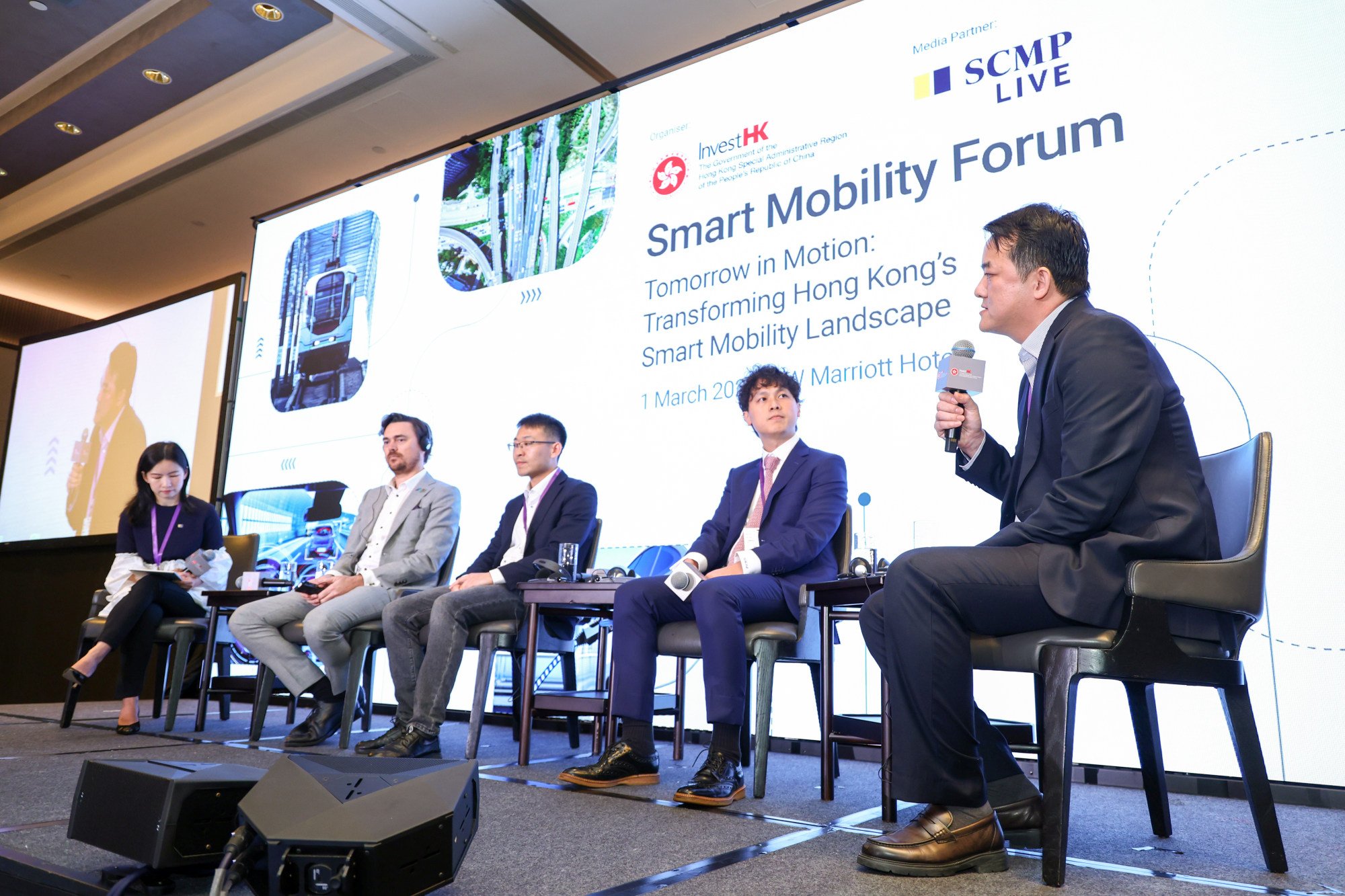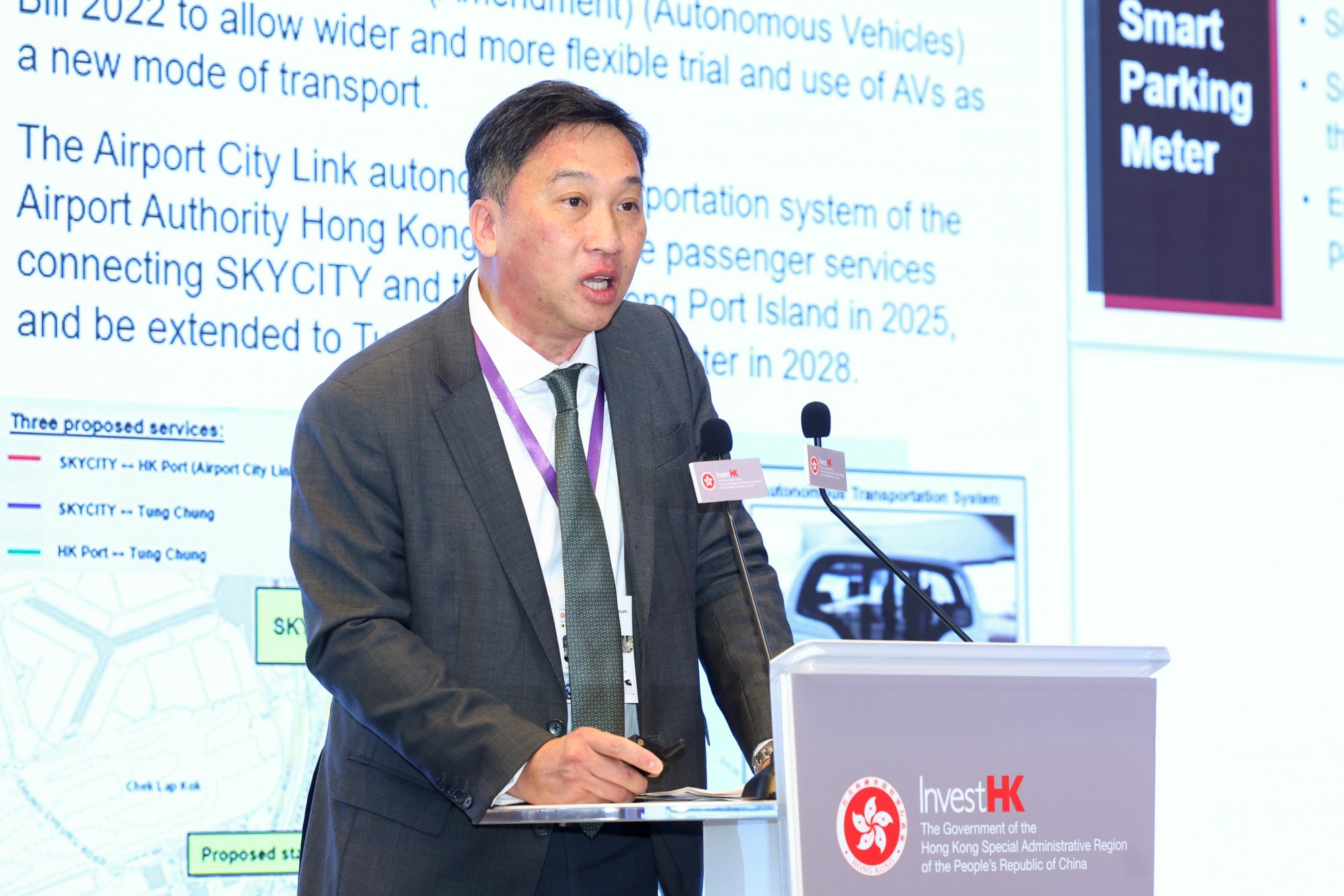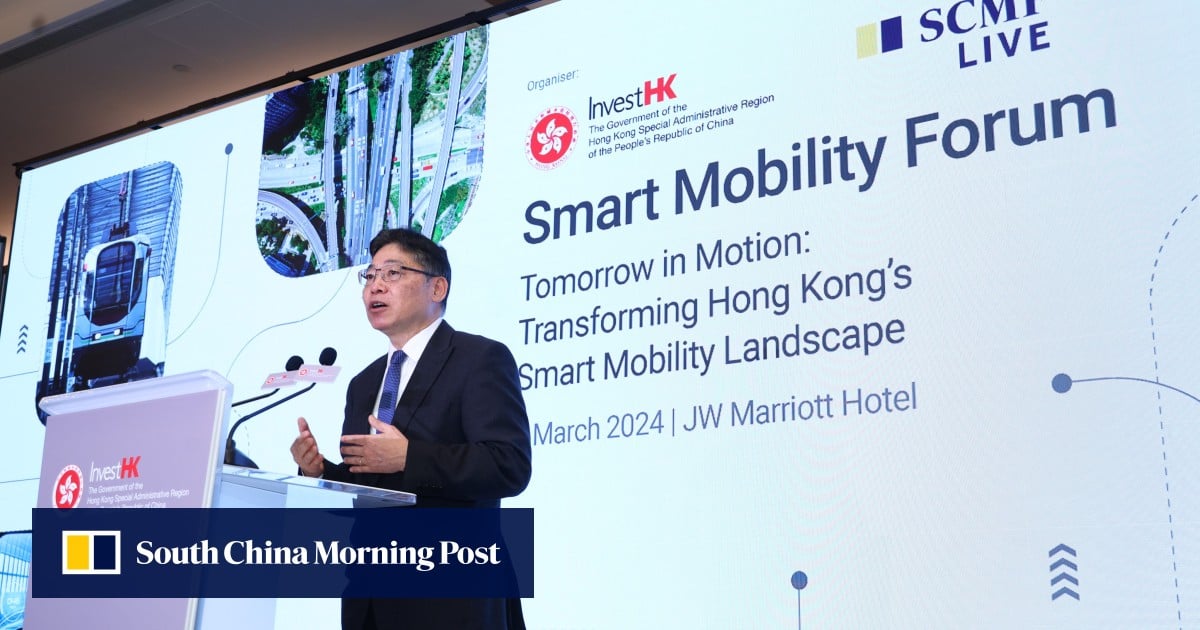Lam indicated that the city is currently looking at the feasibility of deploying autonomous vehicles, each with space for more than 10 people, to serve certain fixed routes like mini buses, with trials to start this year.

The city’s recent smart mobility efforts underscore the government’s plan to achieve cheaper, faster and environmentally friendly travel in the city, while integrating existing modes of public and private transport with advances in the sector.
Hong Kong leaps into Top 20 of world’s smartest cities with rise in health tech
Hong Kong leaps into Top 20 of world’s smartest cities with rise in health tech
At Friday’s Smart Mobility Forum, InvestHK head of innovation and technology Andy Wong said the Hong Kong government had already launched policies and programmes – including the Green Tech Fund and New Energy Transport Fund – to help develop the city’s green and smart transport infrastructure.

Sun pointed out that Hong Kong serves as “the most important transport hub in the entire Asia-Pacific region”.
Azapa, a Japanese solutions supplier for EVs, is currently seeking local partners in Hong Kong for joint projects, according to Yang Weijia, the firm’s director of business planning.
Chinese AI logistics firm picks Hong Kong for international headquarters
Chinese AI logistics firm picks Hong Kong for international headquarters
At the same forum, Alec Curley, a director at consultancy Jacobs, said Hong Kong is already the “envy” of most parts of the world in terms of public transport.
To be sure, the city needs additional and more powerful charging facilities to encourage greater EV adoption, according to Jake Tse, general manager of energy management at NaaS, China’s leading charging service provider.
The Hong Kong government will cease the new registration of petrol and hybrid vehicles by 2035. As of December 2023, the city had 76,395 EVs, which made up about 8.3 per cent of the total number of vehicles in the market, according to data from the Environmental Protection Department.







